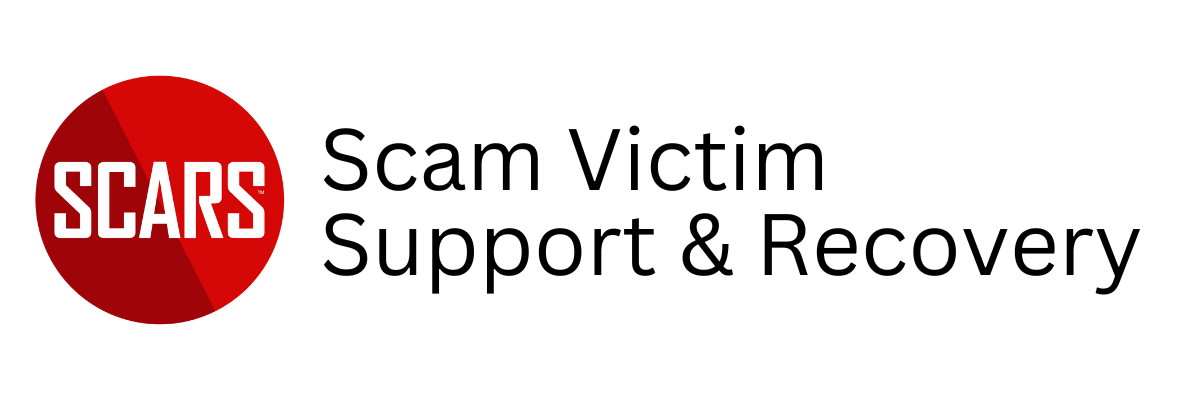Desperation – One of Many Normal Scam Victims’ Responses To Fear
After a Scam Ends Fear Becomes a Dominant Emotion that can drive Desperation or Despair
Primary Category: Recovery Psychology
Authors:
• Vianey Gonzalez B.Sc(Psych) – Licensed Psychologist, Specialty in Crime Victim Trauma Therapy, Neuropsychologist, Certified Deception Professional, Psychology Advisory Panel & Director of the Society of Citizens Against Relationship Scams Inc.
• Tim McGuinness, Ph.D., DFin, MCPO, MAnth – Anthropologist, Scientist, Polymath, Director of the Society of Citizens Against Relationship Scams Inc.
About This Article
Desperation is a profound sense of urgency and anxiety that arises when individuals feel trapped in a hopeless situation, such as a scam victim’s experience. It is driven by fear, hopelessness, urgency, and isolation, leading to intense emotional turmoil, impaired judgment, and risky behaviors.
While desperation can motivate and inspire creativity, it more often results in impulsive decisions and increased vulnerability to further scams.
Recognizing desperation involves monitoring intense emotions, obsessive thoughts, behavioral changes, and physical symptoms like fatigue and sleep disturbances. Taking action includes seeking support, practicing self-care, breaking down problems, avoiding impulsive decisions, and considering professional help.
Differentiating from distress, desperation is more intense and urgent, often leading to high-risk behaviors and extreme measures due to the perceived lack of options. Understanding and addressing desperation can help regain control and promote healthier responses to challenging situations.
Note: This article is intended for informational purposes and does not replace professional medical advice. If you are experiencing distress, please consult a qualified mental health professional.

Scam Victim Desperation: an Emotional Driver and a Normal Reaction to the Fear that Follows the End of a Relationship Scam
What Is Desperation?
Desperation is a profound sense of urgency and anxiety that arises when an individual feels trapped in a difficult or hopeless situation, such as a scam victim after a scam ends. It is often accompanied by feelings of helplessness and a frantic need to escape the negative circumstances. This intense emotional state can stem from various life stressors, including financial fraud and scams, financial difficulties, health crises, relationship breakdowns, loss of employment, or severe disappointment.
Emotional Drivers of Desperation
Desperation is driven by a mix of emotional factors:
- Fear: The fear of losing something valuable, whether it be a person, status, or financial stability, can precipitate a state of desperation.
- Hopelessness: When individuals perceive their situation as unsolvable or unchangeable, they may become desperate.
- Urgency: The pressing need to find a solution quickly to alleviate distress can intensify feelings of desperation.
- Isolation: Feeling alone or unsupported can exacerbate the sense of urgency and helplessness.
The Dual Nature of Desperation
Desperation can have both positive and negative consequences:
Positive Aspects
-
- Motivation: Desperation can spur individuals into action, prompting them to seek solutions or help they might not have considered otherwise.
- Creativity: In dire situations, people may become more creative in problem-solving, thinking outside the box to find a way out.
- Resilience: Experiencing desperation and overcoming it can build resilience and strength, teaching valuable life lessons.
Negative Aspects:
-
- Impulsivity: Desperation often leads to impulsive decisions without thoroughly considering the consequences.
- Vulnerability: Desperate individuals are more susceptible to manipulation, as their urgent need for resolution can cloud their judgment.
- Risk-taking: The frantic need to escape distress may push people to take unnecessary or dangerous risks.
Desperation and Bad Decision Making
In the context of new scam victims, desperation can drive particularly poor decision-making:
- Impaired Judgment: Desperation can impair an individual’s ability to think clearly and rationally. The urgency to recover lost money or restore stability can overshadow logical reasoning.
- Increased Susceptibility: Scammers prey on desperation, offering quick fixes or too-good-to-be-true solutions that seem like a lifeline to the desperate victim.
- Repeated Losses: Victims may continue to invest time, money, and resources into fraudulent schemes, unable to accept their losses due to the sunk cost fallacy.
- Isolation and Secrecy: Desperate victims might avoid seeking advice or discussing their situation with trusted individuals, fearing judgment or further loss, which leads to making uninformed decisions.
- Emotional Manipulation: Desperation makes individuals more emotionally malleable, allowing scammers to exploit their fears and hopes more effectively.
In essence, while desperation can be a powerful motivator, it often leads to hasty and ill-considered decisions, particularly for those already vulnerable, such as new scam victims. Recognizing the signs of desperation and seeking support from trusted sources can mitigate its negative impacts and lead to more measured and effective responses to challenging situations.
Difference Between Desperation and Despair
Distress and desperation, while related, are distinct emotional states with different characteristics and implications. Understanding their differences can provide insight into how they affect behavior and decision-making. It is especially important for those trying to care for individuals in these states to understand the differences.
Distress
Definition: Distress is a state of emotional suffering often characterized by anxiety, sorrow, or pain. It arises in response to challenging or adverse situations and can vary in intensity from mild to severe.
Characteristics:
-
-
- Emotional Reaction: Distress is primarily an emotional response to stressors or negative experiences. It can manifest as worry, sadness, anger, or frustration.
- Physical Symptoms: It often comes with physical symptoms such as headaches, stomach issues, fatigue, or muscle tension.
- Cognitive Effects: Distress can lead to difficulty concentrating, indecisiveness, and a negative outlook.
- Duration: The duration of distress can be short-term, such as feeling upset after a minor argument, or long-term, such as ongoing stress from a difficult job or chronic illness.
- Manageability: Distress is often manageable and can be alleviated through coping strategies, such as relaxation techniques, exercise, social support, or professional help.
-
Desperation
Definition: Desperation is a more intense and urgent emotional state that arises when a person feels trapped in a dire situation with no apparent solution. It often involves a frantic need to escape or resolve the situation.
Characteristics:
-
-
- Intensity: Desperation is more intense than distress. It involves a sense of panic and urgency.
- Impulsivity: Desperation can drive individuals to make hasty, irrational decisions in an attempt to quickly alleviate their suffering.
- Perceived Hopelessness: Desperation often stems from a perception that the situation is hopeless or that options are extremely limited.
- Behavioral Drive: It can push individuals to take extreme measures or risks that they would not consider under less dire circumstances.
- Isolation: Desperation can lead to feelings of isolation and may cause individuals to withdraw from others, fearing judgment or lack of understanding.
-
Key Differences
Intensity and Urgency:
-
-
- Distress is less intense and lacks the urgent need for immediate action.
- Desperation is highly intense and driven by a sense of urgency and panic.
-
Decision-Making:
-
-
- Distress can cloud judgment but typically does not lead to extreme or impulsive actions.
- Desperation often results in impulsive, high-risk decisions aimed at rapid resolution.
-
Perception of Solutions:
-
-
- Distress allows for the recognition of potential solutions and coping mechanisms.
- Desperation often involves a perceived lack of viable solutions, leading to frantic behavior.
-
Behavioral Impact:
-
-
- Distress can be managed with coping strategies and support.
- Desperation can lead to extreme measures and a higher likelihood of negative outcomes, such as falling victim to scams or taking dangerous risks.
-
While both distress and desperation involve emotional suffering, distress is a more moderate and manageable state of discomfort, whereas desperation is an extreme and urgent state of emotional turmoil. Desperation often leads to more impulsive and risky behavior due to the perceived lack of options and the intense need to escape the negative situation. Understanding these differences is crucial for providing appropriate support and interventions.
What It Feels Like To Be Truly Desperate
Feeling truly desperate is an intense and overwhelming emotional state that can significantly impact your thoughts, behaviors, and physical well-being. Recognizing desperation in yourself involves identifying several key emotional, cognitive, behavioral, and physical symptoms. Here’s a detailed look at what it feels like to be truly desperate and how you can recognize it:
Intense Emotional Turmoil:
-
- Overwhelming Fear or Anxiety: A constant, consuming fear about your situation and the future.
- Hopelessness: A pervasive sense that there are no viable solutions or escape routes.
- Panic: Sudden, intense feelings of panic or dread that can feel paralyzing.
- Despair: A deep sense of sadness and despondency, often accompanied by crying or emotional numbness.
Cognitive Symptoms:
-
- Obsessive Thoughts: Repeatedly thinking about the problem with no clear solution, often leading to mental exhaustion.
- Impaired Judgment: Difficulty thinking logically or making rational decisions, often resulting in hasty or extreme actions.
- Negative Thinking: A persistent focus on negative outcomes and worst-case scenarios.
Behavioral Changes:
-
- Impulsivity: Engaging in risky or reckless behaviors as a way to quickly change your situation.
- Isolation: Withdrawing from friends, family, and social activities due to feeling overwhelmed or ashamed.
- Desperate Actions: Taking extreme measures that you wouldn’t consider under normal circumstances, such as drastic financial decisions, considering illegal activities, or harming yourself or others.
Physical Symptoms:
-
- Fatigue: Severe tiredness and exhaustion from the emotional and cognitive strain.
- Physical Discomfort: Headaches, stomachaches, muscle tension, and other stress-related physical symptoms.
- Sleep Disturbances: Insomnia, frequent waking, or excessive sleeping as an escape from reality.
How to Recognize Desperation in Yourself
Monitor Your Emotions: Regularly check in with yourself about how you’re feeling. If you notice intense and overwhelming emotions that persist or escalate, it could be a sign of desperation.
Assess Your Thought Patterns: Pay attention to your thinking. Are you obsessing over a problem without finding solutions? Are your thoughts predominantly negative or catastrophic?
Observe Your Behavior: Reflect on recent actions and behaviors. Have you done things impulsively or taken risks that you normally wouldn’t? Are you withdrawing from others or acting out of character?
Notice Physical Changes: Be aware of your body. Unexplained fatigue, frequent physical discomfort, and significant changes in your sleep patterns can indicate emotional distress and desperation.
Seek Feedback: Sometimes others can see changes in us that we might not notice. Ask trusted friends or family members if they’ve observed any concerning changes in your behavior or mood.
Taking Action to Regain Control
Recognizing desperation is the first step toward addressing it. Here are some actions you can take:
- Seek Support: Reach out to friends, family, or a mental health professional. Talking about your feelings can provide relief and perspective.
- Practice Self-Care: Focus on activities that reduce stress and promote well-being, such as exercise, meditation, or hobbies you enjoy.
- Break Down Problems: Instead of trying to solve everything at once, break down your problems into smaller, manageable steps.
- Avoid Impulsive Decisions: Give yourself time to think through major decisions. Seek advice and consider all options carefully.
- Professional Help: If desperation persists, consider seeking help from a therapist or counselor who can provide strategies and support for managing intense emotions.
By recognizing and addressing feelings of desperation, you can begin to regain control and work towards resolving the underlying issues in a healthier, more sustainable way.
Please Rate This Article
Please Leave Us Your Comment
Also, tell us of any topics we might have missed.
Leave a Reply
Thank you for your comment. You may receive an email to follow up. We never share your data with marketers.
-/ 30 /-
What do you think about this?
Please share your thoughts in a comment above!
More Psychology Related Information:
- Scam Psychology – Journal of Applied Scam Fraud & Cybercrime Psychology
- A Scam Victim in Extreme Distress – Stopping the Pain – 2024 (scamsnow.com)
- Motivational Denial – Recovery Psychology – 2023 (scamsnow.com)
- Anger & Self-Radicalization – Recovery Psychology 2023 (scamsnow.com)
- Secrets Can Be Deadly For Scam Victims – Scam Victim Recovery Psychology (scamsnow.com)
- People Often Cannot Recognize That They Have Depression – 2024 (scamsnow.com)
- Psychological Pain And Scam Victims Recovery – 2024 (scamsnow.com)
- Being A Victim – Labeling Theory & What It Means For Victims Of Scams Or Anyone! – 2023 [UPDATED 2024] (scamsnow.com)
- Residual Fear In Scam Victims – 2024 (scamsnow.com)
- ‘I Just Want To Forget It’ – Denial & Avoidance Are Natural But Will Not Help Scam Victims On Their Path To Recovery From Scams – 2024 (scamsnow.com)
-/ 30 /-
What do you think about this?
Please share your thoughts in a comment above!
SCARS LINKS: AgainstScams.org RomanceScamsNOW.com ContraEstafas.org ScammerPhotos.com Anyscam.com ScamsNOW.com
reporting.AgainstScams.org support.AgainstScams.org membership.AgainstScams.org donate.AgainstScams.org shop.AgainstScams.org
youtube.AgainstScams.org linkedin.AgainstScams.org facebook.AgainstScams.org
ARTICLE RATING
TABLE OF CONTENTS
CATEGORIES
MOST POPULAR COMMENTED ARTICLES
POPULAR ARTICLES
U.S. & Canada Suicide Lifeline 988
![NavyLogo@4x-81[1]](https://scamsnow.com/wp-content/uploads/2025/04/NavyLogo@4x-811.png)
ARTICLE META
WHAT PEOPLE ARE TALKING ABOUT LATEST SITE COMMENTS
See Comments for this Article at the Bottom of the Page
on Substance Abuse Susceptibility And Scam Victims – 2024: “It is understandable how some would feel that alcohol or substance abuse would be helpful in handling their feelings after…” Jul 1, 20:36
on Scam Victims Use Work To Avoid Healing: “The last 6 years have been the most difficult of my life. The pandemic, having both parents in the hospital…” Jun 29, 18:38
on Entitlement Mentality And How Scam Victims Often Lose Their Path To Recovery – 2024: “Thank you for this discussion of entitlement. I can see from the descriptions listed that I have not felt entitlement.…” Jun 29, 18:22
on Samurai Wisdom and Rituals for Clearing the Mind After Scam Trauma – 2025 – [VIDEOS]: “A great guide on how to move forward in our recovery process with a calm mind, cleansed on an ongoing…” Jun 28, 07:34
on Delayed Gratification and Patience in Scam Victim Recovery – 2025 – [VIDEOS]: “We want to recover quickly and… we make new mistakes. How not to speed up the recovery process, how to…” Jun 28, 06:41
on The Unique Injury Of Betrayal Trauma On Scam Victims – 2024: “Primarily because you did not see it coming” Jun 27, 23:57
on Changes In A Scam Victim’s Life: “I really detest the way my trust in others has been affected by the scamming I went through. I used…” Jun 27, 14:47
on The Unique Injury Of Betrayal Trauma On Scam Victims – 2024: “Betrayal Trauma is the worst feeling ever. Why does it seem so much worse when a scammer does that to…” Jun 27, 14:34
on EMDR Therapy For Scam Victims’ Trauma – A Part Of The Recovery Process For Many – 2024: “Very comprehensive article explaining all aspects of EMDR. I’d only heard of it before and now I have a much…” Jun 26, 19:01
on Forgiving Yourself After Surviving a Romance or Investment Scam – 2025: “Thank you for this valuable article. Self-forgiveness was for me the biggest step that led to my recovery. That also…” Jun 26, 17:28
on Counseling And Your Native Language: “These points make perfect sense. I can’t imagine trying to express complex emotions in a second language. I realize many…” Jun 26, 16:05
on Thought-Terminating Cliches – How What You and Others Say Stops Critical Thinking and Recovery for Scam Victims – 2025: “I didn’t realize that these “innocent phrases” clichés ending thoughts, can have such effect / negative -inhibiting / on our…” Jun 26, 14:48
on Scam Victim Resistance In Support Groups Therapy Or Counseling Can Destroy Opportunities For Recovery – 2024: “Working with either a support group or therapist to me means a self commitment to actively participating in the therapy.…” Jun 24, 21:01
on ‘I Just Want To Forget It’ – Denial & Avoidance Are Natural But Will Not Help Scam Victims On Their Path To Recovery From Scams – 2024: “My financial loss, the shock and betrayal of the crime ending all combined to fray my nerves and spend hours…” Jun 24, 20:10
on You Hate Being Told What To Do? How Your Rebellious Mentality Can Sabotage Your Recovery – 2025: “I am a bit of a rebel, and the moment someone tells me to do something, worse, does it even…” Jun 24, 15:04
on You Hate Being Told What To Do? How Your Rebellious Mentality Can Sabotage Your Recovery – 2025: “You are very welcome” Jun 24, 03:01
on You Hate Being Told What To Do? How Your Rebellious Mentality Can Sabotage Your Recovery – 2025: “This is a great article, which makes perfect sense as to why anyone would resist the help offered to them.…” Jun 23, 20:01
on Scam Victims’ Responsibilities – 2021 [Updated 2025]: “Thank you for this article. As I continue my journey, I focus on the here and now and let the…” Jun 21, 16:26
on Scam Victims Avoid Or Escape The Aftermath Of Scams – How Denial And Distraction Avoid Confronting Reality – 2024: “In the earliest days after my crime I felt powerless, helpless and weak. I had been through so much in…” Jun 21, 14:46
Important Information for New Scam Victims
Please visit www.ScamVictimsSupport.org – a SCARS Website for New Scam Victims & Sextortion Victims
SCARS Institute now offers a free recovery program at www.SCARSeducation.org
Please visit www.ScamPsychology.org – to more fully understand the psychological concepts involved in scams and scam victim recovery
If you are looking for local trauma counselors, please visit counseling.AgainstScams.org
If you need to speak with someone now, you can dial 988 or find phone numbers for crisis hotlines all around the world here: www.opencounseling.com/suicide-hotlines
Statement About Victim Blaming
Some of our articles discuss various aspects of victims. This is both about better understanding victims (the science of victimology) and their behaviors and psychology. This helps us to educate victims/survivors about why these crimes happened and not to blame themselves, better develop recovery programs, and help victims avoid scams in the future. At times, this may sound like blaming the victim, but it does not blame scam victims; we are simply explaining the hows and whys of the experience victims have.
These articles, about the Psychology of Scams or Victim Psychology – meaning that all humans have psychological or cognitive characteristics in common that can either be exploited or work against us – help us all to understand the unique challenges victims face before, during, and after scams, fraud, or cybercrimes. These sometimes talk about some of the vulnerabilities the scammers exploit. Victims rarely have control of them or are even aware of them, until something like a scam happens, and then they can learn how their mind works and how to overcome these mechanisms.
Articles like these help victims and others understand these processes and how to help prevent them from being exploited again or to help them recover more easily by understanding their post-scam behaviors. Learn more about the Psychology of Scams at www.ScamPsychology.org
SCARS INSTITUTE RESOURCES:
If You Have Been Victimized By A Scam Or Cybercrime
♦ If you are a victim of scams, go to www.ScamVictimsSupport.org for real knowledge and help
♦ Enroll in SCARS Scam Survivor’s School now at www.SCARSeducation.org
♦ To report criminals, visit https://reporting.AgainstScams.org – we will NEVER give your data to money recovery companies like some do!
♦ Follow us and find our podcasts, webinars, and helpful videos on YouTube: https://www.youtube.com/@RomancescamsNowcom
♦ Learn about the Psychology of Scams at www.ScamPsychology.org
♦ Dig deeper into the reality of scams, fraud, and cybercrime at www.ScamsNOW.com and www.RomanceScamsNOW.com
♦ Scam Survivor’s Stories: www.ScamSurvivorStories.org
♦ For Scam Victim Advocates visit www.ScamVictimsAdvocates.org
♦ See more scammer photos on www.ScammerPhotos.com
You can also find the SCARS Institute on Facebook, Instagram, X, LinkedIn, and TruthSocial
Psychology Disclaimer:
All articles about psychology and the human brain on this website are for information & education only
The information provided in this and other SCARS articles are intended for educational and self-help purposes only and should not be construed as a substitute for professional therapy or counseling.
Note about Mindfulness: Mindfulness practices have the potential to create psychological distress for some individuals. Please consult a mental health professional or experienced meditation instructor for guidance should you encounter difficulties.
While any self-help techniques outlined herein may be beneficial for scam victims seeking to recover from their experience and move towards recovery, it is important to consult with a qualified mental health professional before initiating any course of action. Each individual’s experience and needs are unique, and what works for one person may not be suitable for another.
Additionally, any approach may not be appropriate for individuals with certain pre-existing mental health conditions or trauma histories. It is advisable to seek guidance from a licensed therapist or counselor who can provide personalized support, guidance, and treatment tailored to your specific needs.
If you are experiencing significant distress or emotional difficulties related to a scam or other traumatic event, please consult your doctor or mental health provider for appropriate care and support.
Also read our SCARS Institute Statement about Professional Care for Scam Victims – click here
If you are in crisis, feeling desperate, or in despair, please call 988 or your local crisis hotline.
More ScamsNOW.com Articles
A Question of Trust
At the SCARS Institute, we invite you to do your own research on the topics we speak about and publish. Our team investigates the subject being discussed, especially when it comes to understanding the scam victims-survivors’ experience. You can do Google searches, but in many cases, you will have to wade through scientific papers and studies. However, remember that biases and perspectives matter and influence the outcome. Regardless, we encourage you to explore these topics as thoroughly as you can for your own awareness.














![scars-institute[1]](https://scamsnow.com/wp-content/uploads/2025/04/scars-institute1.png)
![niprc1.png1_-150×1501-1[1]](https://scamsnow.com/wp-content/uploads/2025/04/niprc1.png1_-150x1501-11.webp)

This describes exactly what the first few months were like after the contact ended. I experienced so much anxiety, my stress level was off the charts and I had night terrors. Thankfully, over time all the symptoms mentioned have lessened.
I have experienced both desperation and despair from my scam experience. This article describes both perfectly. Desperate to get my money back I encountered several recovery scammers that were only going to cost me more financial loss. Having SCARS to turn to has really helped me accept I may never get my money back, but I can recover and move on with my life.
Thank you for your comment. We are glad you are participating in our Scam Survivor’s School at http://www.SCARSeducation.org